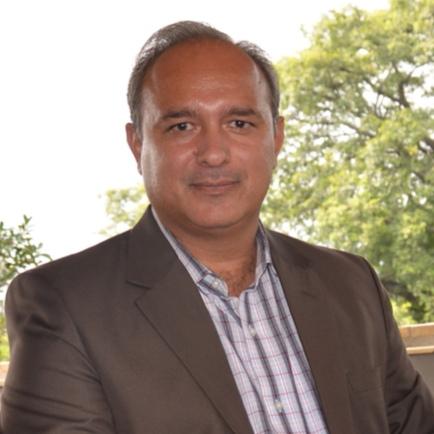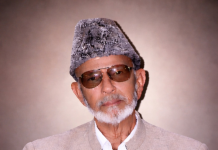Irfan Shahzad Takalvi
It was in the air for quite some time. It became all the more evident with the body language and mutual gestures of Canadian PM and his Indian counterpart in the recently held G20 summit, in New Delhi. The aura of unease and uncomfortable interactions between the leaders of North American and South Asian nation were noticed by all those following the international events and developments.
Yet, few would have expected it to unfold it like it did in the week that followed. Justin Trudeau minced no words when he announced on September 18 that his country’s intelligence had credible information of possible Indian involvement in the killing of Sikh activist Hardeep Singh Nijjar, in Canada, in June this year.
Ottawa did not stop here. Canadian FM made the unpleasant announcement of expulsion of a top Indian diplomat from Canada, whom the Canadians labeled as head of Indian intelligence agency (RAW – Research and Analysis Wing), in their country.
Tit-for-tat response came from New Delhi a day later, on September 19. Not only did India’s Ministry of External Affairs registered its protest to the Candain High Commissioner, but also expelled a top diplomat to settle the score – as per the diplomatic norms. Tensions, since then, have blown into a full-scale diplomatic row and even the US has admitted that Canadian accusations are based on intelligence from the ‘Five Eyes.’
Is it an ordinary diplomatic row? It is not.
Nijjar was killed in suburbs of Vancouver outside a Sikh temple called Gurdwara in a locality where Sikhs of Indian origin live in sizeable numbers. Canada is home to one of the largest Sikh diasporas outside India. Sikhs – long calling for an independent homeland named Khalistan – have stepped up their demand for self-rule in recent years. Largely ceremonial referendums ‘approving’ independence from India have been held in a number of nations. Activists like Nijjar have been leading such moves, antagonizing India.
Canada is the nation where Sikh diaspora have also reached the high echelons of power, including a recent former Defense Minister.
New Delhi has been trying to portray the renewed Sikh demands for freedom and a separate homeland – dubbed as Khalistan 2.0 by international observers – as a ‘non-issue.’ Events inside Indian Punjab and Haryana – the two Indian states with largest Sikh population – as well as across the globe wherever Sikhs live and work, suggest otherwise. Indian authorities and agents have targeted, and followed, Sikhs of significance stature both inside and outside Indian boundaries creating a lot of hue and cry, tensions and hostilities.
On the other side of the planet, in Australia’s Queensland, graffiti demonizing Indian prime minister Narendra Modi sprang up on the walls of a Hindu temple in March earlier this year. Modi’s supporters were quick to blame it on Sikh activists of Australia – also leading ‘Khalistan referendums’ in some ways. Now, police documents suggest ‘Hindu hand’ – meaning Modi’s supporters did it themselves to implicate rival Sikhs. That certainly is not ordinary, it is not normal.
Groupings like Overseas Friends of BJP (Bhartia Janta Party that Modi leads) went to the extent of calling for boycott of Sikh businesses. Three other Australian temples have also been defaced – and a similar plot may not be ruled out.
In 2019, Britian’s first Sikh Member of Parliament (MP) Tanmanjeet Singh Dhesi was also attacked by OFBJP – an event that shocked the entire United Kingdom, where the legislature is revered as the mother of democracy. OFBJP leaders boast being close to Modi.
Interestingly, rather ironically when British PM Rishi Sunak – himself a self-proclaimed ‘proud’ Hindu of Indian origin and having expressed warm feelings for Modi a number of times– when asked about Sikhs’ calls for freedom in Britain, was quick to turn the topic towards what he labeled as Pro-Khalistan Extremism (PKE). Not hard to guess where his sympathies really lie.
Leaders and relevant institutions of countries such as Australia, the US and the UK have understandably come forward quickly to express their concerns on the worsening tensions between Canada and India. They have labeled Canadian accusations as very serious.
They must surely be concerned as all of them host large Sikh populations and Hindu-Sikh equation is not all that comfortable in any of them. Peace and tranquility in their own homelands may be at the receiving end of this unfolding saga, they are well aware. Not something to ignore.
Yet, it is also a reality that AUKUS nations – in addition to their EU member partners and Japan – have been treating India leniently and specially in a number of cases. Examples include but are not limited to maltreatment of minorities in India at the hands of majority Hindus, nuclear proliferation, and conduct of business with countries under sanctions such as Iran and Russia. Would the AUKUS nations’ strategic interests vis-à-vis India prevail over the right of people like Sikhs for self-expression and self-determination, remains an important question.
Modi and his BJP are already in the electioneering mood – where Indian PM is seeking a third term. In such a politically charged and delicate environment in India, fair or unfair moves that inflict damage to Sikhs (along with Kashmiris and others) would certainly win more votes. Yet, if the world – particularly, the US, the UK and EU nations – ignore India-backed world-wide campaign against Punjabi speaking Sikhs, the consequences could be quite damaging and destabilizing.
The author is founding president of the Eurasian Century Institute (ECI), Islamabad-Pakistan. He may be accessed at [email protected]

















